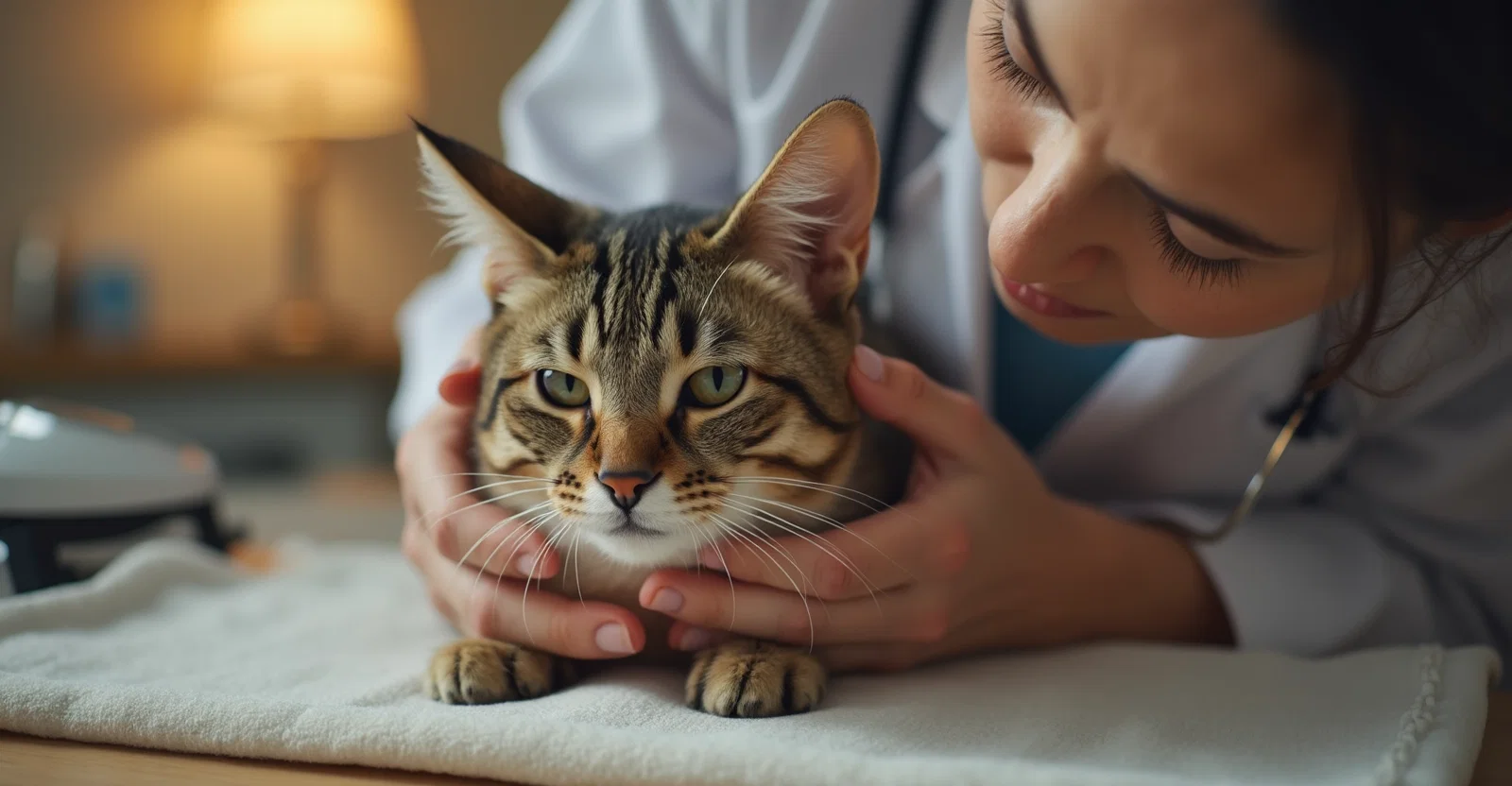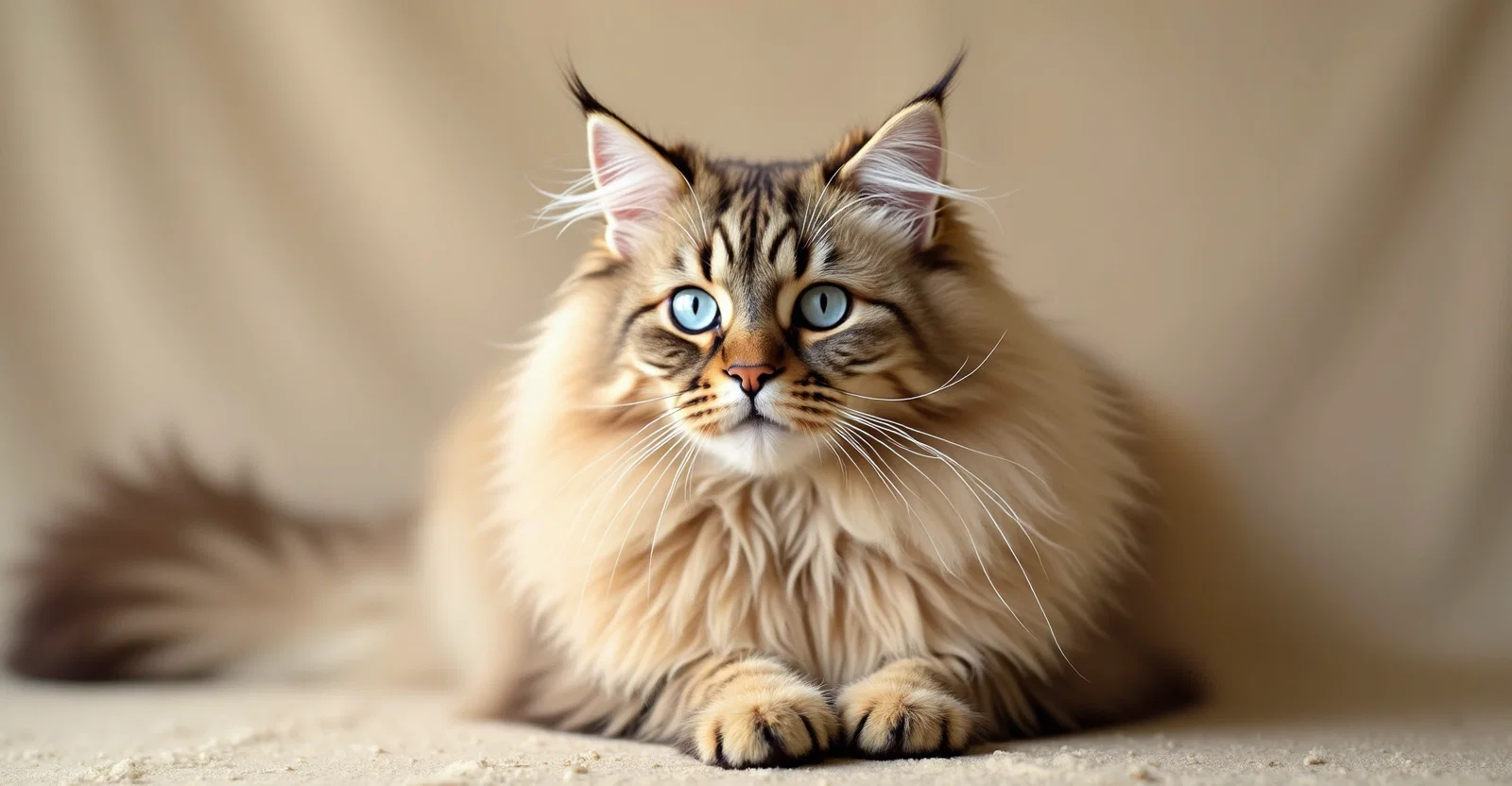
Genetic Diseases in Cats: Understanding Hereditary Health Issues
Genetic diseases in cats are inherited disorders that pass from one or both parents to their kittens, potentially causing various health problems. Genetic diversity in cats, especially in purebreds, can increase the risk of certain genetic diseases. This article is prepared for readers who want to learn about genetic disorders and hereditary diseases in cats. Our aim is to inform cat owners about common genetic diseases, their causes, symptoms, and treatment options.
Common Genetic Diseases
Polycystic Kidney Disease (PKD)
PKD is a disease characterized by multiple fluid-filled cysts that form in the kidneys and grow over time. These cysts can impair kidney function and lead to kidney failure. PKD is an autosomal dominant disease, meaning it can be inherited from just one parent. Persian and Exotic Shorthair cats are among the breeds susceptible to PKD. Symptoms of PKD include increased urine production, excessive thirst, weight loss, and lethargy. Veterinarians can use tests like DNA analysis from cheek swabs to diagnose PKD. Unfortunately, there is no definitive cure for PKD, but medications and lifestyle changes can be used to slow disease progression and manage symptoms.
Hypertrophic Cardiomyopathy (HCM)
HCM is a heart disease where the heart muscle thickens and hardens. This thickening reduces the heart’s ability to pump blood and can lead to heart failure. HCM is commonly seen in Maine Coon and Ragdoll cats. Symptoms of HCM include shortness of breath, lethargy, and loss of appetite. Veterinarians can use genetic tests and heart ultrasound to diagnose HCM. HCM also has no definitive cure, but medications can be used to manage symptoms and improve quality of life.
Hypokalemic Polymyopathy
Hypokalemic polymyopathy is a disease where low potassium levels in the blood cause muscle weakness, stiff gait, and difficulty holding the head upright. This condition is commonly seen in Asian cat breeds like Burmese, Bombay, and Tonkinese, as well as Rex cats. It is an autosomal recessive disease, meaning it must be inherited from both parents. Stress, cold weather, or exercise can trigger attacks. Veterinarians can use genetic tests to diagnose hypokalemic polymyopathy. This disease can be treated with potassium supplements.
Breed-Specific Genetic Diseases
Different cat breeds show varying susceptibilities to genetic diseases. This usually results from selective breeding practices used to achieve breed standards. These practices can lead to the transmission of both desired physical characteristics and some genetic diseases from generation to generation.
For example, Polycystic Kidney Disease (PKD) is frequently seen in Persian and Exotic Shorthair cats. PKD is a serious disease that causes fluid-filled cysts to form in the kidneys and can lead to kidney failure.
 Hypertrophic Cardiomyopathy (HCM) is mostly seen in Maine Coon and Ragdoll cats. HCM is a disease that causes thickening and hardening of the heart muscle, reducing the heart’s ability to pump blood.
Hypertrophic Cardiomyopathy (HCM) is mostly seen in Maine Coon and Ragdoll cats. HCM is a disease that causes thickening and hardening of the heart muscle, reducing the heart’s ability to pump blood.
Hypokalemic Polymyopathy is more common in Asian cat breeds like Burmese, Bombay, and Tonkinese, as well as Rex cats. This disease causes muscle weakness due to low potassium levels in the blood.
Symptoms of genetic diseases vary according to breeds and specific diseases. Therefore, learning about genetic diseases seen in different cat breeds can help cat owners better understand their pets’ health and detect potential risks early.
Prevention of Genetic Diseases
Minimizing genetic disease risk is possible through responsible breeding practices. Inbreeding should be absolutely avoided as it significantly increases the risk of genetic diseases because related individuals are more likely to share harmful recessive genes. Another important step in reducing genetic disease risk is conducting genetic tests. Genetic tests can help determine whether cats are carriers of specific genetic diseases. This way, breeding cats carrying genetic diseases can be prevented, increasing the chance of healthy kittens.
Purebred cats are more vulnerable to genetic diseases due to reduced genetic diversity. Potential cat owners should consider this risk when thinking about adopting a purebred cat. They should learn about the genetic diseases their chosen breed is prone to and take care to adopt from responsible breeders.
Conclusion
This article has covered common genetic diseases in cats, their causes, symptoms, and treatment options. Diseases like PKD, HCM, and hypokalemic polymyopathy are serious health issues that can negatively affect cats’ quality of life. Responsible breeding practices and genetic tests play an important role in reducing the risk of these diseases.
You can consult the following resources to learn more about genetic diseases in cats:
- Veterinarians: You can get the most accurate and current information about your cat’s health from your veterinarian.
- Cat Breeders: Experienced cat breeders may have knowledge about genetic predispositions of different breeds.
- Cat Health Organizations: These organizations provide general information and resources about cat health.
It’s important to consult with your veterinarian to reduce your cat’s genetic disease risk and protect their health. Your veterinarian can guide you regarding appropriate preventive measures and genetic tests based on your cat’s breed and lifestyle.
